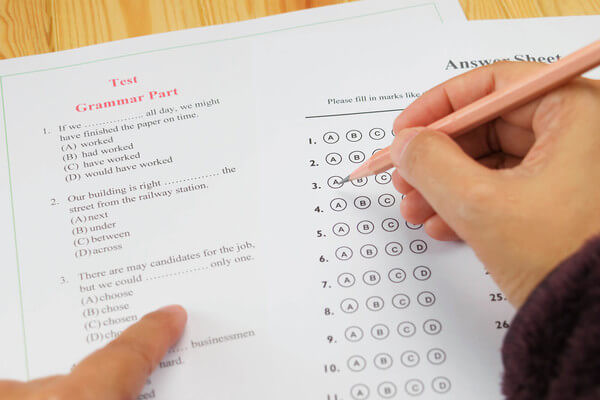Your Gateway to Canada

Unlock the secrets to acing Canada's immigration language tests.
Canada, known for its picturesque landscapes and multicultural cities, has always been a beacon of opportunity for immigrants worldwide. Yet, the journey to becoming a Canadian resident or citizen involves various steps, one of which is proving your language proficiency in English or French. This blog post will explore the intricate world of language tests required for Canada's immigration processes, offering insights into what each test entails and how your scores can influence your immigration journey.
Understanding Canada's Language Requirements
The Canadian government, through Immigration, Refugees, and Citizenship Canada (IRCC), mandates that individuals applying for permanent residence or citizenship demonstrate their language skills. This requirement underscores the importance of effective communication in either of the country's two official languages—English and French. As a prospective immigrant, you must undergo language testing, which is a critical component of your application.
Language Tests for Permanent Residence
For those seeking permanent residence, two English tests are widely recognized: the Canadian English Language Proficiency Index Program (CELPIP) and the International English Language Testing System (IELTS). Both tests assess your capabilities across speaking, listening, reading, and writing. Meanwhile, for French proficiency, the Test d'évaluation de français (TEF Canada) is the designated examination.
These tests are aligned with Canada's immigration points system, where your scores can directly impact the success of your application under programs like Express Entry or various provincial nomination schemes. The results are measured using the Canadian Language Benchmarks (CLB) for English and the Niveaux de compétence linguistique canadiens (NCLC) for French.
The Federal Skilled Worker Program
The Federal Skilled Worker Program, a key pathway to Canadian immigration, requires applicants to achieve a minimum CLB or NCLC level of 7 in all four language abilities for their first official language. For a second language, a minimum level of 5 is necessary. These benchmarks ensure that newcomers possess a functional command of language for effective integration into Canadian society.
CELPIP and IELTS: Interpreting the Scores
For the CELPIP General Test, achieving a CLB level of 7 equates to scoring 7 in speaking, listening, reading, and writing, garnering 4 points per ability. Higher proficiency levels, such as CLB 8 and 9, offer increased points, reflecting higher language aptitude.
Similarly, the IELTS General Training test aligns CLB levels with specific band scores. For instance, a CLB level of 7 corresponds to a 6.0 score across all abilities, while higher scores elevate your CLB level and point total, enhancing your application profile.
TEF Canada: French Proficiency
For French-speaking applicants, the TEF Canada exam assesses your language skills against NCLC levels. A score equating to NCLC 7 in speaking, listening, reading, and writing is essential, with higher scores translating into more points.
Federal Skilled Trades Program
The Federal Skilled Trades Program caters to individuals with experience in skilled trades. Here, the language requirements are slightly different, demanding a CLB or NCLC level of 5 in speaking and listening, and level 4 in reading and writing. This reflects the practical language skills necessary for trade-specific occupations.
Canadian Experience Class
The Canadian Experience Class facilitates the transition for those already in Canada on temporary visas. Language requirements vary by job classification, with National Occupational Classification (NOC) 0 or A demanding a CLB/NCLC of 7+, while NOC B requires a level of 5 or 6.
Language Proof for Canadian Citizenship
For aspirants of Canadian citizenship aged 18-54, demonstrating language ability is mandatory. Candidates must provide proof of language proficiency at a CLB or NCLC level 4 or higher in speaking and listening. Interestingly, even expired test results may be accepted if they were initially intended for immigration or citizenship purposes.
Accepted Language Tests
Accepted tests for citizenship include the CELPIP General and General LS tests, taken post-April 2014, needing a level 4 or higher in listening and speaking. For IELTS, scores of 4.0 or higher in speaking and 4.5 in listening are required. The TEF and its variations also have specific requirements depending on the test date.
Conclusion: Navigating Your Path to Canada
Language proficiency is more than a bureaucratic hurdle; it is a vital tool for successful integration into Canadian society. Understanding the nuances of these language tests and preparing accordingly can significantly enhance your chances of a successful application. As you embark on this journey, remember that these tests not only assess your current abilities but also prepare you for a new life in Canada, where communication is key.
Whether you are applying for permanent residence or citizenship, mastering the language requirements is an essential step toward achieving your Canadian dream.
